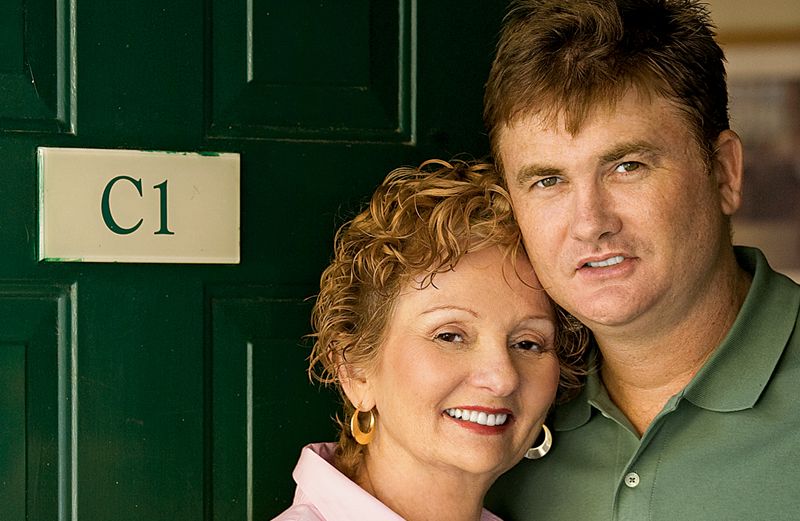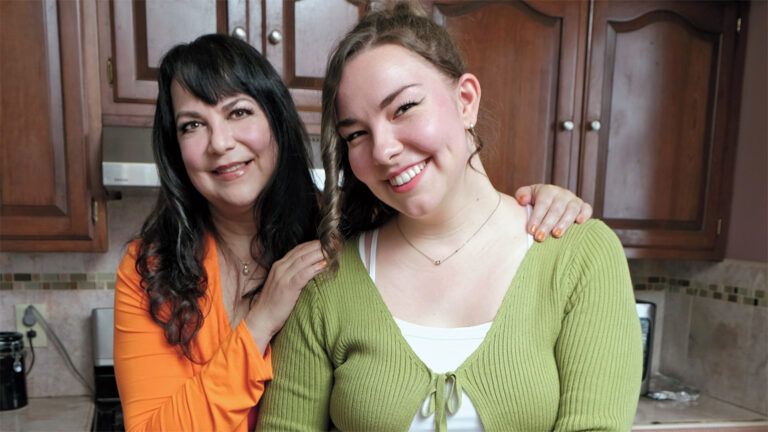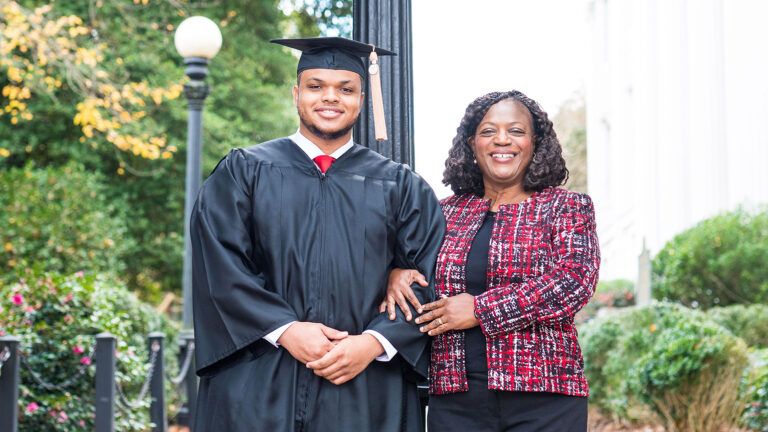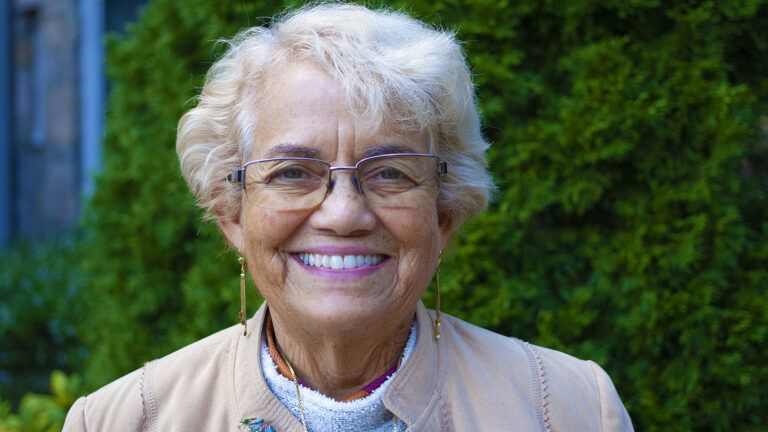My son Jeremy stood aside, not meeting my eyes–or maybe it was me who didn’t want to meet his–and let my husband Gene and me walk into his mental health counselor’s office ahead of him.
We’d gotten him out of jail two nights before. Blenda, an addictions specialist, had given him an emergency appointment that May morning and urged us to sit in on the session.
Every time Jeremy got into trouble and couldn’t find a way out–and there had been so many times that I’d finally lost count–he hurried back to Blenda, as if he knew she was the one person in the world tough enough to keep trying with him.
She had counseled Jeremy for six years and she’d seen him in every kind of emotional state imaginable. Uncontrollable rages fueled by drugs. Manic know-it-all phases when he stopped taking his medication for bipolar disorder. Withdrawn and scared moods.
Or those increasingly rare instances when he was charming and funny, polite and cooperative. When he was the son I still had hope for, however fading.
I sat down on the brown leather sofa in Blenda’s office, wondering which Jeremy we would see this time. Gene took a chair. Jeremy plopped down on the sofa next to me. Evidently he remembered that Blenda figured out a lot about family dynamics based on where everyone chose to sit.
Jeremy had showered, shaved and put on clean clothes. He must have left them behind the last time he stayed at our house–when I’d caught him huffing (inhaling aerosol sprays to get high), and had to kick him out.
Now he leaned forward, clasping his hands loosely between his long legs, and listened intently to Blenda. His eager, cooperative posture. I inched away from him on the sofa.
Just give it up, Marion, a weary voice inside told me. You can’t let yourself hope anymore. It’s too late for Jeremy.
Jeremy had lost his father, my first husband, when he was 15 years old–a vulnerable age, not that he showed it. He had seemed so strong then, forging through his grief, taking over his father’s jobs around the house, like keeping our yard perfectly weeded and mown.
In his twenties, he ran his own thriving landscaping business.
But in his mid-thirties, Jeremy fell apart, as if all the feelings he’d been holding back since he was a teenager erupted, a kind of emotional volcano that destroyed everything in its path–cars, apartments, relationships, his business, the successful life he had built for himself.
Now he was 41, and I was terrified that addiction and bipolar disorder had finally swallowed up the real Jeremy. I’d read the arrest report. The police had been questioning people in the neighborhood where Jeremy was hanging out.
He hadn’t committed the crime they were investigating, and if he had just cooperated, he wouldn’t have ended up in jail.
But he had been skipping his bipolar meds. He reacted belligerently. He said that he’d done meth, cursed the officers, charged at them. They had to tase him twice.
I hardly heard a word Jeremy said to his counselor. My mind kept going back to two nights before, when we’d picked him up from jail. Guards led him into the waiting area, limping–an old hip injury from one of his car wrecks.
“It’s not my fault,” he bellowed. “I was just standing there minding my own business!” The bedraggled clothing, the dirt-encrusted hands, the wild eyes…nothing about this disturbed man resembled the Jeremy I knew, the son I loved.
“Marion, Gene,” the counselor’s no-nonsense voice brought me back to the session. “I’m very concerned for Jeremy’s life right now. He doesn’t have many more chances. I’m asking you to take him into your home for at least thirty days. He needs structure.
“But if he breaks even one rule, he’s out. He must get back on his bipolar medication, see counselors regularly, go to 12-step meetings…”
I wanted to scream, Blenda, we’ve lost the battle. Can’t you see that? Didn’t she understand the terrible anguish of watching someone you love self-destruct and feeling powerless to help him? She really expected me to open myself up again to that kind of pain?
I glared at her as she rocked gently in her chair, waiting for our answer.
Jeremy sat up straight, rubbing his hands back and forth on his jeans, not daring to look at me or Gene.
“He can stay with us,” Gene said.
I didn’t know how he could be so calm. I didn’t trust myself to speak. I just nodded mutely. It was more resignation than consent.
When we got home, I put Jeremy in the guest room. He joined us for meals. But I kept my heart closed off. Constantly I watched him for any slip-up, any deception, even the smallest white lie. One mistake and I was ready to pounce.
I was not going to get hurt again. I was not going to risk having hope again for my son. Hope had been such an empty promise.
To my amazement, the county health department promptly provided excellent counseling and the prescription medication Jeremy needed to control his bipolar disorder–all free of charge. Begrudgingly, I gave a silent prayer of thanks.
Jeremy found an AA group that met at seven in the morning. “I need this to start my day off right,” he told us. Since his driver’s license had been revoked, he got someone else in the group to pick him up and then bring him back to our house afterward. He went to those meetings six days a week.
The seventh day he went to meetings of the biblically based program Celebrate Recovery. “Man, you can confess anything there,” he told us one night at supper. “No one judges or rejects you. I fit in.” He paused. “I’m going to make it this time.” There was a quietness in his tone, not his old bravado.
“Sounds good,” Gene said. The smile he gave Jeremy said even more. It said, I believe you will make it.
Lord, how I wish I could believe it too, I thought.
Jeremy was trying hard. He kept his room immaculate. He helped around the house without being prompted and kept asking us if there was more that he could do, even as his limp grew worse. He took his meds regularly. He went to his counseling appointments. He was committed to his recovery groups.
Still, I kept thinking–almost expecting–that he would revert to his old behavior. I had seen it happen so many times already–Jeremy would get clean only to relapse and sink even lower than he had been before. And each time it felt as if he were taking a part of me with him.
Six months after Jeremy moved in with us, Blenda agreed that he was ready to try living on his own again. In November, he rented a starter apartment in the nearby town of Athens.
He told us about an organization there that provided medical care for people who couldn’t afford it. He had talked to someone in their office who thought that they might be able to give him hip-replacement surgery, free of charge.
I was certain that he had misunderstood. It just sounded too good to be true. But sure enough, just before Christmastime, Jeremy received a new hip, compliments of Mercy Health Center.
Soon, Jeremy was getting around so well that he was back doing some lawn care. His clients were so pleased with his work that they were willing to come over and pick him up.
He even lined up a job at a bakery-café and bought an old bike for five dollars at a yard sale so that he could get to and from work.
Part of me was happy for Jeremy. But another part of me couldn’t help remembering his last apartment–a nice place that had ended up trashed after repeated drug binges. It seemed as if the more progress my son made, the more I imagined the worst.
One spring day I was driving home from shopping and passed Jeremy’s new apartment. His ancient yard-sale bike was chained to a post. That meant he was home.
I decided to stop in and say hi. Or was I checking on him, always concerned that I might catch him at something? Did I just want to get the disappointment over with?
The door was unlocked. I walked in. “Hey, it’s me,” I called. The small three-room apartment was sparkling clean and fresh smelling, neater than I’d ever kept my house.
Jeremy hollered from the bedroom, “Take off your shoes, Mom. I just vacuumed and mopped.” He came out to the kitchen, carrying his Bible.
“Guess what? They made me a sponsor at Celebrate Recovery last night. And later this month, I get my one-year chip from AA.” He was beaming. “Check out Romans 5:5,” he said. He handed me his Bible. He had highlighted the Scripture in yellow: Hope does not disappoint.
I looked up at Jeremy. There was a sweetness in his expression, a trust that I had all but forgotten since I had let go of hope.
Right then the sun streamed in through the little kitchen window, and we stood there together, bathed in light. I took a deep breath and caught the faint aroma of bleach and something else, something fresh and citrusy: lemon.
Hope will always smell like lemons to me.
At that moment, standing there looking into my son’s clear eyes, I let myself trust in the miracle of his recovery, and whatever plan God had for Jeremy. I let hope into my life again, a hope as warm and bright as sunlight.
Download your free eBook, Let These Bible Verses Help You: 12 Psalms and Bible Passages to Deepen Your Joy, Happiness, Hope and Faith.




